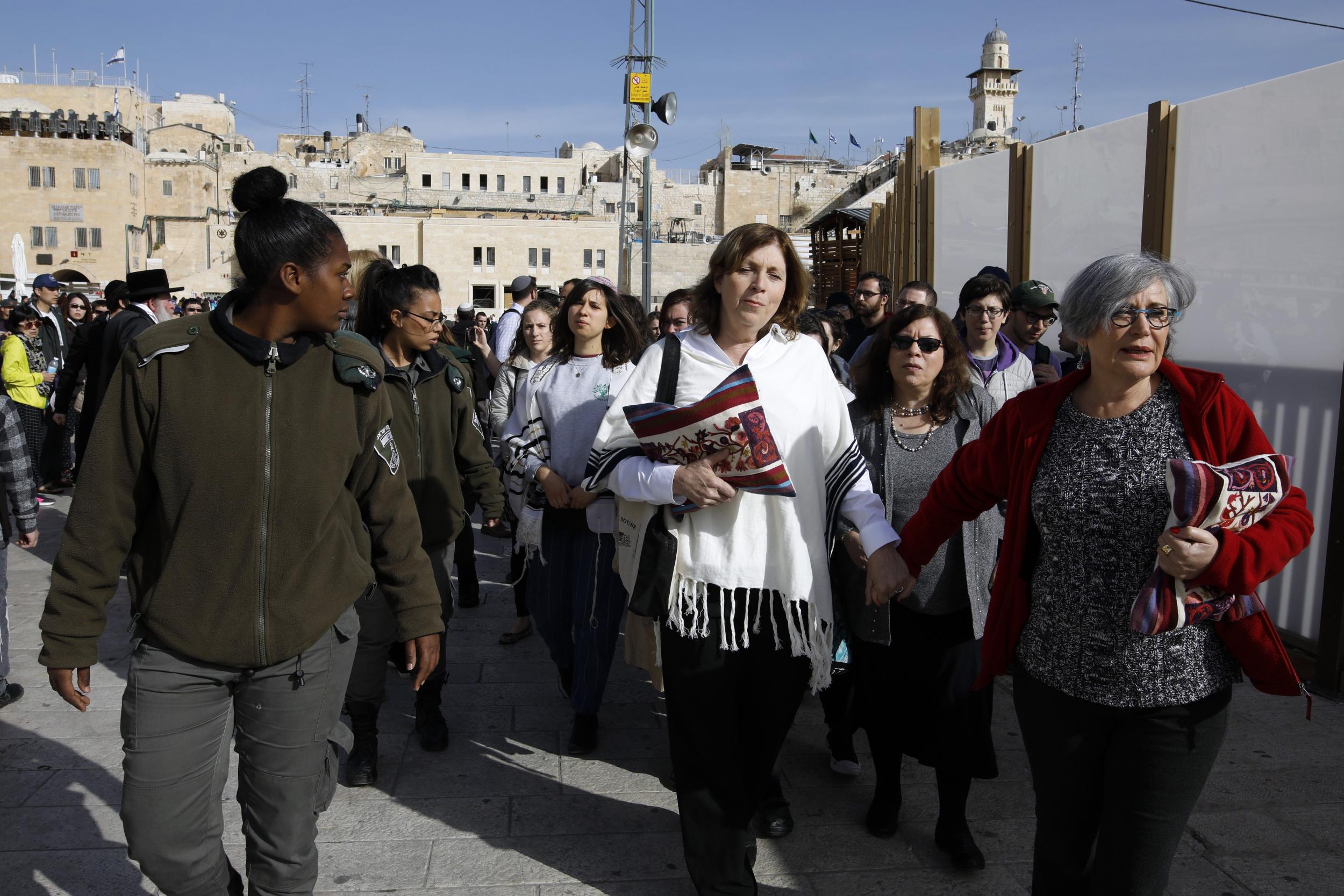Meet the ‘Israeli suffragettes’ fighting for Orthodox women’s right to vote
Haredi feminism, a growing movement in Israel, is encouraging ultra Orthodox Jewish women to take control of their lives through political participation

Israel is fond of its sobriquet as “the only democracy in the Middle East”.
Critics are quick to point out the many issues attached to a state which effectively controls the lives of 4.5 million neighbouring Palestinians.
Even closer to home, Israeli women from the ultra Orthodox Jewish community often find themselves without a voice in the political sphere, whatever the law may say.
No women currently represent Orthodox parties in the Knesset, or on any local municipality boards.

“There aren’t even reliable voting figures for Haredi (Orthodox) women because they rarely turn out to vote,” said Pnina Pfeuffer, a Haredi political activist and board member of the Yerushalmim municipal party.
“Haredi women are not downtrodden or oppressed stereotypes,” she told The Independent in a recent meeting in Jerusalem. “We work, often more than men do, and we enjoy our rights.
“But that I think makes us complacent enough not to demand more. When it comes to voting our voices are totally stifled. We are not involved in the public sphere at all.
“Many women who do vote just go along and vote for who their husbands tell them to vote for, strengthening the system that already exists.”
The ultra Orthodox community currently makes up about 10 per cent of Israel’s population, but with a birth rate double the national average, the community and its power are set to grow.
As Israeli society has become increasingly polarised in recent years on both the political and religious spectrums, women’s groups have found themselves fighting for the female right to worship at the Western Wall, to keep images of their faces on posters and billboards in religious neighbourhoods, and even lobby for their right to use men-only bomb shelters.
Faced with increasingly entrenched conservatism, some Haredi women are becoming more and more vocal about “achieving a voice in the halls of power,” as Ms Pfeuffer puts it.
In 2012 activist group Nivcharot was formed to protest the exclusion of Haredi women from politics and public life. In the country’s 2015 election, feminist ultra Orthodox party Biz’chutan ran a list of four female candidates.
Ms Pfeuffer hopes to be the first ultra Orthodox women to be elected to the Jerusalem city council before 2019 – and last month, she helped to form the first ever Haredi women’s lobby in the Knesset.
“The ball is rolling now,” she said. “Too many women are aware what is at stake and what real representation means.”
“It’s a struggle, I won’t deny that,” said Fleur Hassan-Nahoum, Jerusalem’s first female deputy mayor, who was elected last year after reaching out to largely ignored voter groups including ultra-Orthodox women and the Ethiopian Jewish community.
“It is hard to stand as a woman and hard to challenge the dominant culture and way of doing things. But people like Pnina are breaking those barriers and leading the way.“
There is widespread dissatisfaction with the state of Israeli politics across the country: Prime Minister Benjamin Netanyahu, along with his wife Sara and several close associates, have been implicated in corruption scandals.
The Netanyahus deny all allegations of wrongdoing, but similar charges against Benjamin’s predecessor Ehud Olmert bought down his government after his coalition allies abandoned him.
Talk of an early election before November next year has largely faded. But endemic corruption issues and an increasingly polarised political spectrum – not to mention the stagnation of the Palestinian peace process – have left young voters in particular disillusioned.

Women politicians are ready to step in and breathe new life into politics, Stav Shafir, a Labour party Member of the Knesset and the youngest-ever female MK, told The Independent in Tel Aviv.
Ms Shafir, now serving her second term, rose to prominence as a leader of the 2011 social justice protests across the country She is now serving a second term, and campaigns on a platform of transparency in state budgets and fair access to housing.
“Israel’s left is reconnecting to the economic and social issues that matter to society,” she said.
“We have so many communities that have been disenfranchised for too long. I’m looking forward to seeing that change.”
Join our commenting forum
Join thought-provoking conversations, follow other Independent readers and see their replies
Comments
Bookmark popover
Removed from bookmarks